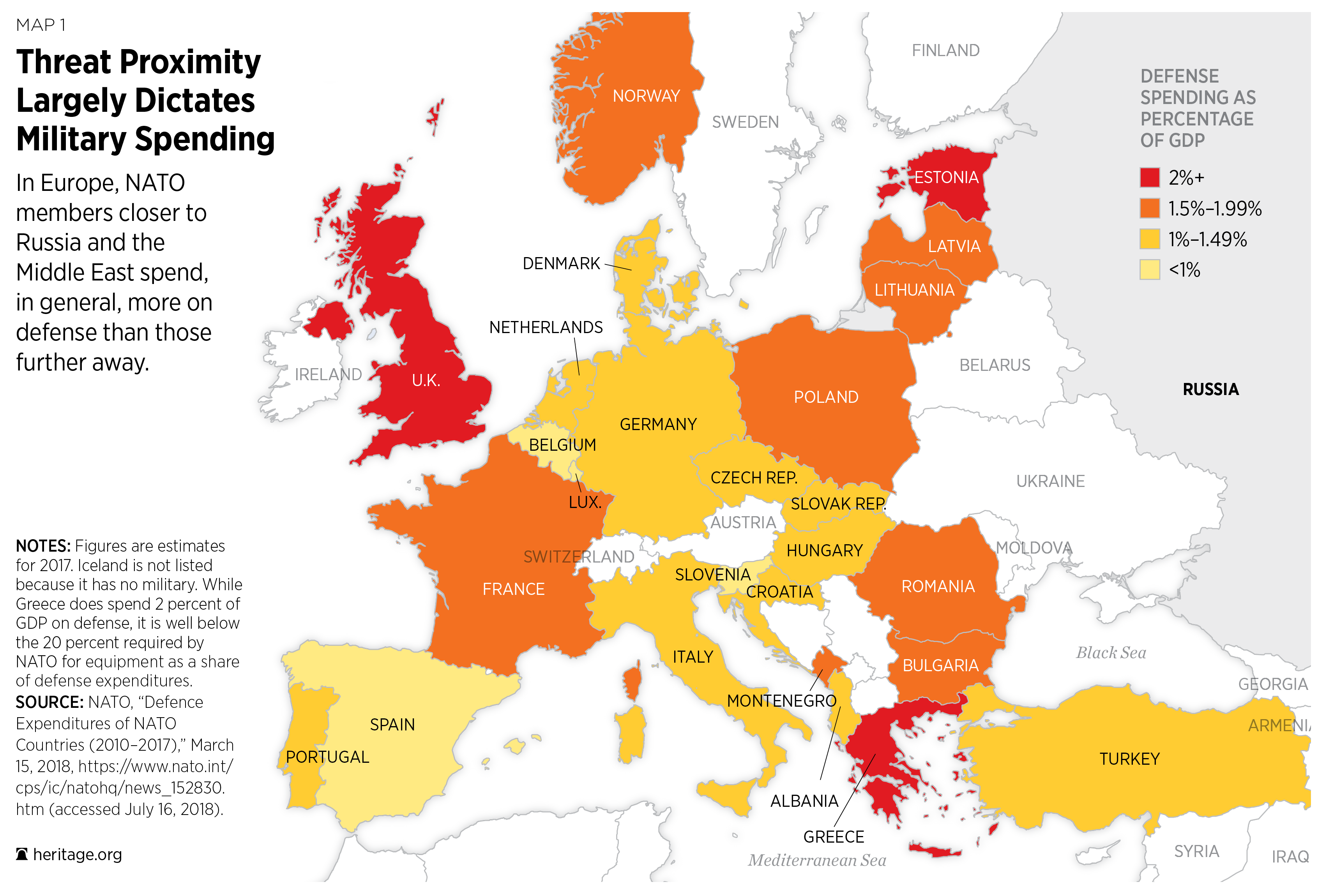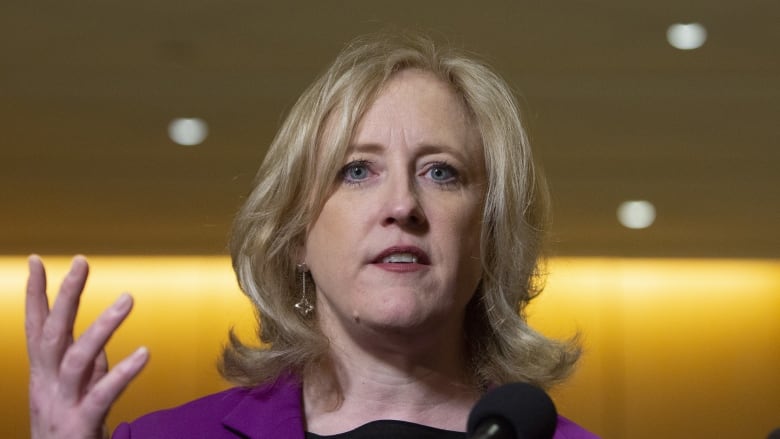Rising Global Defense Budgets: Europe's Security Concerns In The Shadow Of Russia

Table of Contents
The Ukraine Conflict as a Catalyst
The 2022 Russian invasion of Ukraine served as a stark wake-up call for Europe. The conflict exposed vulnerabilities in European defense capabilities and dramatically altered perceptions of security threats. The sheer scale of the invasion, coupled with Russia's demonstrable willingness to use military force against a sovereign nation, fundamentally shifted the security calculus for European nations.
-
Increased military threats perceived from Russia: The invasion shattered the illusion of a peaceful post-Cold War era, highlighting the persistent and evolving threat posed by Russian aggression. This perceived threat extends beyond Ukraine, raising concerns about potential spillover effects in neighboring countries. The use of ballistic missiles and other advanced weaponry showcased Russia's military capabilities and ambitions.
-
Exposure of vulnerabilities in European defense capabilities: The war revealed critical gaps in European military preparedness, particularly concerning readiness, equipment, and interoperability between different national armies. Many countries lacked sufficient stocks of essential munitions and equipment, highlighting the need for significant investment.
-
Accelerated military aid to Ukraine: The massive influx of military aid to Ukraine, coordinated largely by NATO members, has placed a strain on defense stocks and highlighted the need for increased production capacity. This also underscores the direct link between European security and the conflict's outcome.
-
Shift in public opinion towards increased defense spending: Initially hesitant towards significant military spending, public opinion across many European nations has shifted in favor of increased defense budgets in light of Russia’s actions. This change reflects a growing understanding of the real security threats facing the continent.
-
Rising energy prices and their impact on defense budgets: The war in Ukraine and the subsequent energy crisis have had a significant economic impact, potentially affecting the allocation of resources to defense budgets. Balancing energy security with defense spending has become a crucial challenge for many European nations.
Increased Russian Military Aggression and its Implications
Russia's military actions, including the annexation of Crimea in 2014 and the full-scale invasion of Ukraine in 2022, represent a significant escalation of aggression that directly threatens European security. These actions have demonstrated Russia's willingness to violate international law and utilize various forms of warfare to achieve its geopolitical objectives.
-
Annexation of Crimea and invasion of Ukraine: These events serve as blatant violations of international law and have created a precedent that undermines the security architecture of Europe. The invasion showcases the potential for further aggression against neighboring countries.
-
Hybrid warfare tactics employed by Russia: Russia's use of information warfare, cyberattacks, and disinformation campaigns alongside conventional military operations highlights the multifaceted nature of the threat and necessitates a comprehensive response. This requires enhanced cyber security measures and investments in counter-intelligence operations.
-
Deployment of advanced weaponry systems: The deployment of advanced weapons systems, including precision-guided munitions and hypersonic missiles, during the war in Ukraine has raised concerns about Russia’s military technological advancements and their potential impact on European defense systems. This necessitates investments in countermeasures and modernization programs.
-
Increased Russian military presence near European borders: Russia's increased military presence and exercises near European borders contribute to a sense of heightened threat, raising concerns about potential escalations and requiring heightened vigilance and preparedness. This necessitates enhanced surveillance and intelligence gathering capabilities.
-
Threat of further escalations: The unpredictable nature of the conflict and the possibility of further Russian escalations contribute to Europe's growing security anxieties, driving the need for robust defense strategies. This includes contingency planning and enhanced crisis response mechanisms.
-
NATO's response to Russian aggression: NATO has responded to Russian aggression by strengthening its collective defense posture through increased military exercises, enhanced deployments, and improved interoperability among member states.
NATO's Enhanced Role and its Impact on Defense Budgets
NATO's response to Russian aggression has been a key driver of increased defense spending among its European members. The alliance's commitment to collective defense has led to a significant recalibration of defense strategies and budgets.
-
Increased military exercises and deployments: NATO has significantly increased the frequency and scale of military exercises, strengthening readiness and interoperability amongst member states. This increased activity requires funding for personnel, equipment, and logistical support.
-
Strengthening of collective defense capabilities: NATO has focused on enhancing collective defense capabilities, including improved intelligence sharing, early warning systems, and coordinated response mechanisms. This necessitates investments in modern technology and infrastructure.
-
Modernization of military equipment: Many NATO members are undertaking significant modernization programs to upgrade their military equipment and enhance their combat capabilities. This involves procurement of new weapons systems, vehicles, and technological upgrades.
-
Increased investment in cyber security and intelligence: Recognizing the importance of cyber warfare and intelligence gathering, NATO members are investing heavily in these areas to counter the threats posed by Russia and other actors. This requires specialized personnel, advanced technology, and robust security protocols.
-
Growing calls for a stronger European defense union: The Ukraine conflict has renewed calls for a more integrated and capable European defense union, potentially complementing or even eventually supplementing NATO's role. This would require significant political will and coordinated investment from European nations.
The Economic Impact of Rising Defense Budgets
The significant increase in defense spending across Europe has notable economic consequences. This requires careful consideration of both opportunities and challenges presented by this shift in resource allocation.
-
Opportunity costs: potential reduction in spending on social programs and other critical areas: Increased military spending often comes at the expense of other vital areas, such as healthcare, education, and infrastructure, raising concerns about potential trade-offs. This necessitates prioritization and strategic resource allocation.
-
Impact on national debt: Significant increases in defense spending can lead to an increase in national debt, especially for countries with already strained public finances. This needs careful financial planning and responsible budgeting.
-
Potential for economic instability: A rapid and substantial increase in defense spending can potentially destabilize national economies, leading to inflationary pressures and other negative economic consequences. This requires careful economic monitoring and mitigation strategies.
-
The arms race and its economic repercussions: The potential for an arms race, whereby countries continually increase military spending to match or exceed that of their rivals, can have devastating economic consequences, diverting resources from essential social programs and potentially fueling instability. This emphasizes the need for diplomatic solutions and arms control measures.
-
Investment opportunities within the defense sector: The rise in defense spending also creates investment opportunities within the defense industry, fostering innovation and economic growth in related sectors. This provides incentives for technological advancements and economic diversification.
Europe's Strategic Response and Future Outlook
European countries are adopting various strategic responses to the heightened security environment, shaping their future defense posture and international partnerships.
-
Strengthening national defense capabilities: Many European nations are focused on strengthening their national defense capabilities through investment in military modernization, personnel training, and enhanced readiness. This requires long-term planning and strategic resource allocation.
-
Increased cooperation among European nations: There is a growing emphasis on increased military and intelligence cooperation among European nations to enhance their collective security and resilience. This necessitates harmonization of defense policies and improved interoperability.
-
Deepening of ties with NATO: Many European countries are deepening their ties with NATO, enhancing their commitment to collective defense and strengthening their cooperation with the alliance. This involves active participation in NATO initiatives and contributing to shared security goals.
-
Investment in new defense technologies: Significant investment is being made in new defense technologies, such as cyber warfare capabilities, artificial intelligence, and advanced weaponry systems, to counter emerging threats. This entails collaboration between government, industry, and academia.
-
Focus on cyber security and resilience: Cybersecurity is increasingly recognized as a critical component of national security, leading to significant investments in cyber defense capabilities and resilience measures. This includes protection of critical infrastructure and enhanced cyber intelligence.
-
Potential for an independent European defense force: There is ongoing debate about the potential creation of an independent European defense force, which could complement or eventually supplement NATO's role. This requires significant political will and agreement among European nations.
Conclusion
The war in Ukraine has undeniably triggered a significant increase in global defense budgets, with Europe facing unprecedented security concerns in the shadow of Russia. This has led to a reassessment of defense strategies, increased military spending, and a renewed focus on collective security within NATO and potentially within a more unified European framework. The economic implications are substantial and require careful consideration.
Call to Action: Understanding the complex dynamics of rising global defense budgets and Europe’s security anxieties is crucial. Further research and analysis of the long-term implications of this significant shift in the geopolitical landscape are essential to navigate the challenges and opportunities presented by this evolving situation. Stay informed on the latest developments concerning Rising Global Defense Budgets and Europe's Security Concerns.

Featured Posts
-
 Conservative Leader Poilievre Loses Seat Cbc Election Projections
May 01, 2025
Conservative Leader Poilievre Loses Seat Cbc Election Projections
May 01, 2025 -
 Dragon Den Shock Businessman Rejects Investors Accepts Risky Deal
May 01, 2025
Dragon Den Shock Businessman Rejects Investors Accepts Risky Deal
May 01, 2025 -
 Solid Skenes Start Wasted As Offense Fails To Deliver
May 01, 2025
Solid Skenes Start Wasted As Offense Fails To Deliver
May 01, 2025 -
 De Bio Based Basisschool En De Noodzaak Van Een Noodgenerator
May 01, 2025
De Bio Based Basisschool En De Noodzaak Van Een Noodgenerator
May 01, 2025 -
 Dragons Den Success Stories Lessons Learned From The Show
May 01, 2025
Dragons Den Success Stories Lessons Learned From The Show
May 01, 2025
